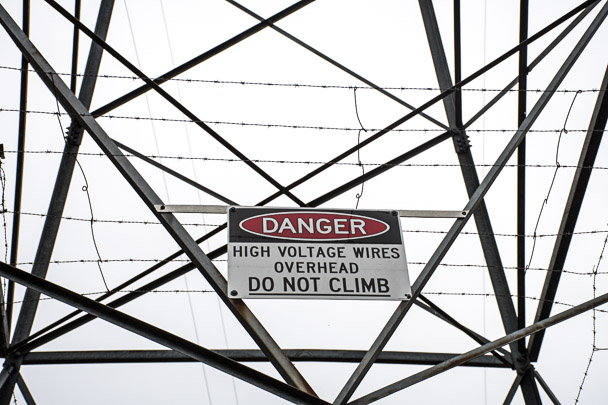Analysis: A secretive $1 million campaign that involves hidden election plans and “influencers” demands investigation

There is a long history of Tasmanian governments enthusiastically embracing secrecy when it comes to major projects. But TasNetworks’ $1 million contract for a lobbying and PR campaign for the proposed $3.8 billion Marinus transmission link with Victoria is a new low.
All the indications are that Tasmanians weren’t supposed to find out about the national campaign that TasNetworks and a trio of PR and lobbying firms have been running since March 2021. The agency could have mentioned the contract in its last annual report or issued a media release, but it didn’t. That in itself speaks volumes.
When Tasmanian Inquirer sought clarification on why the register of lobbyists indicated TasNetworks had hired Font PR, the reply came that it had a contract for “strategic advisory services” that had been the subject of a competitive tender. It wouldn’t confirm whether the contract was related to the Marinus link, and TasNetworks refused to supply a copy of the tender brief due to unspecified “commercial-in-confidence and privacy considerations”.
It was a ludicrous claim about a document openly circulated to bidding companies. TasNetworks later abandoned the “commercial-in-confidence” claim when a Right to Information (RTI) request was submitted and released the whole document.
But the attempt to hide the contract raises many questions. For starters: if the Marinus Link is such a good project, why all the secrecy?
Who are the “influencers” the lobbying and PR consortium proposed to “subtly activate”? What do they do? Why does TasNetworks need influencers? And do the influencers ever disclose their connection to the government-owned utility?
The consortium of PR and lobbying firms committed to develop “government relations” plans to help TasNetworks in “navigating upcoming federal and state elections to best advantage”. What did these plans entail? What exactly did they end up doing in the state election last year and the federal election in May?
If the TasNetworks campaign passes without further scrutiny, it will set a new benchmark on how government agencies can use public resources to wage stealth campaigns to dominate the public debate on controversial projects and drown out dissenting voices.
There are also unanswered questions about when the Energy Minister, Guy Barnett, one of TasNetworks’ two shareholding ministers, was informed about the campaign and just how much he knows. A request for clarification to Barnett’s office drew no meaningful response, aside from acknowledging the contract had been awarded after a competitive tender process.
A spokesperson for the government has defended the contract, saying “it is appropriate that the Marinus project team engages with key stakeholders across the nation”. But if it is as benign as that, why all the secrecy? Why not just publish all TasNetworks records relating to the contract, including the minutes of the steering committee meetings and all the strategy documents, on its website? Then at least Tasmanians could see what funds are being spent on.
The reality is that TasNetworks spending more than $1 million on lobbyists and PR consultants at a time of rising electricity prices - and when it was reportedly planning on cutting several hundred jobs - was never going to go down well. But perhaps the main driver behind the secrecy was the certainty that disclosing the details of the contract would only invite more public and parliamentary scrutiny about precisely what the campaign involved.
A recent Tasmanian Integrity Commission discussion paper noted that the Commonwealth and state lobbying registers, except for Queensland, “do not provide any information on the public officers that have been lobbied, when that lobbying occurred or the purpose or substance of the lobbying activity”. If nothing else, the TasNetworks campaign has reinforced the urgent need for stricter regulation of the lobbying industry and government agencies.
If the TasNetworks campaign passes without further scrutiny, it will set a new benchmark on how government agencies can use public resources to wage stealth campaigns to dominate the public debate on controversial projects and drown out dissenting voices. And that is hardly a good development when trust in government is under challenge and democracies worldwide are faltering.
 @BobBurtonoz
@BobBurtonoz